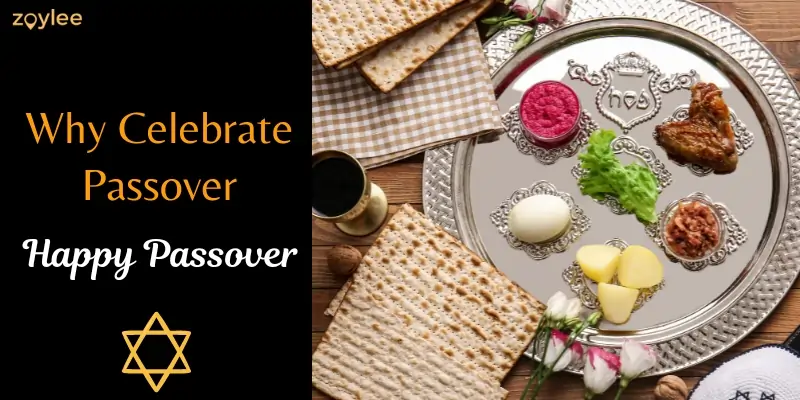
Passover 2024 in the USA is a week-long Celebration of Freedom. It commemorates a pivotal moment in Jewish history: the Exodus, the liberation of the Israelites from slavery in ancient Egypt. A joyous week-long celebration filled with symbolism, delicious food, and enduring emotions.
This year in the USA, Passover in 2024 begins at sundown on Monday, April 22nd and ends at nightfall on Tuesday, April 30th (although some traditions may observe an end date of April 29th).
Passover, also known as Pesach (pronounced PEH-sach), is a major Jewish holiday that celebrates the Israelites’ liberation from slavery in ancient Egypt. It’s a joyous week-long festival filled with traditions, delicious food, and powerful emotions.
Passover commemorates a pivotal moment in Jewish history: the Exodus, the liberation of the Israelites from slavery in ancient Egypt. According to the Book of Exodus, God sent ten plagues upon Egypt to pressure the Pharaoh to release the Israelites. To protect their firstborn sons from the final plague, the Israelites were instructed to mark their doorways with lamb’s blood. The “Angel of Death” passed over these houses, sparing the Israelites and marking the beginning of their freedom.
Passover celebrates this liberation, reminding us of the importance of fighting for justice and the enduring power of hope.
The Passover Seder Plate is a central element of the Passover Seder meal, a special dinner held on the first two nights of Passover. It’s more than just a fancy serving dish; each item on the plate represents a symbolic part of the Exodus story, helping participants relive and connect with the Israelites’ journey from slavery to freedom.
Here’s a breakdown of some key items found on the Seder Plate:
As the Seder unfolds, each food is explored, its significance discussed, keeping the story of the Exodus alive for generations.
Read Also: 20 Bright Summer Nails Design Ideas
Passover has distinct food rules. Leavening grains (chametz) like bread are avoided, symbolizing the Israelites’ hurried escape from Egypt. Instead, they eat matzah, a flat unleavened bread. Some also restrict kitniyot (legumes, rice) due to concerns about accidental mixing with grains or resemblance to chametz flour.
Passover is a vibrant and joyous holiday observed by Jewish communities across the USA. Here are some ways you can embrace the spirit of Passover:
Passover is a joyous celebration that transcends the historical event. It’s a time for families to gather, share stories, and reflect on the enduring themes of freedom, resilience, and faith. It’s a reminder that even in the face of oppression, hope and liberation can prevail.
You may also read: Curly Hair Type and How to Care For It
Passover in 2024 starts at sundown on Monday, April 22nd and ends at 30th April.
Passover in 2024 starts at sundown on Monday, April 22nd, and ends at nightfall on Tuesday, April 30th (although some traditions may observe an end date of April 29th).
There are 4 Rules for the Passover
Jews celebrate Passover to commemorate the Exodus, the liberation of the Israelites from slavery in ancient Egypt. It’s a joyous celebration of freedom and a core part of Jewish history and tradition.
Passover follows the Hebrew calendar, while Easter follows the lunisolar calendar. This difference leads to their dates shifting year to year, and in 2024 they don’t coincide.
Passover in 2023 began at sundown on Wednesday, April 5th, and ended at nightfall on Thursday, April 13th (or Wednesday, April 12th in some traditions).
There are a few ways to say “Happy Passover” in Hebrew, depending on the level of formality you desire in a Formal way חג פסח שמח (Hag Pesach Sameach) and in an Informal way פסח שמח (Pesach Sameach).